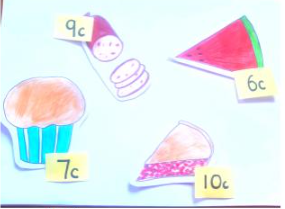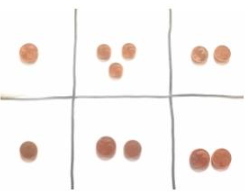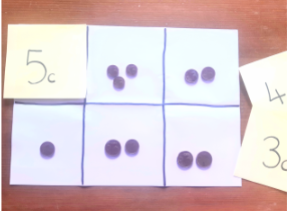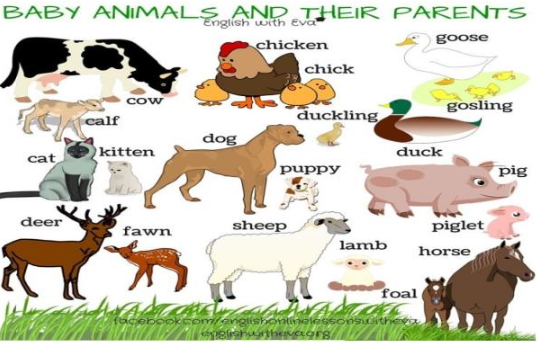- Home
- Policies
- About Us
- Parents
- Parents’ Association
- News
- Junior Infants
- Useful Documents
- School Calendar
- School Lotto
- Supporting Pupils with Special Educational Needs: Resources to support continued engagement with learning
- NEPS Resources
- Seesaw Information
- Zoom Information
- Internet Safety
- Useful Resources for Home Learning
- Parents’ Library
- Covid-19 Updates
- Active School
- Archives
- Contact Us
Suggested Activities 15th-19th June
Maths
Money
- How many ways can you make 2c, 3c, 4c, 5c, 6c, 7c, 8c, 9c, 10c?
– Take a sheet of paper and write 4c in the middle of the page.
– Using coins, try to come up with as any combinations as you can to make 4c (for example 2c + 2c/ 2c + 1c + 1c/ 1c + 1c + 1c + 1c/)
– Place these combinations around the 4c you have written and match them to the 4c.

- The following are links to worksheets your child might have covered in class. You could print them out or complete them on an ipad. You could also use them to help you to create your own worksheet for your child:
https://my.cjfallon.ie/preview/student/7389/128
https://my.cjfallon.ie/preview/student/7389/129
https://my.cjfallon.ie/preview/student/7389/130
- Use the following pictures to play shops! Make sure that your child as a selection of real coins to use. Try to encourage her to use different combinations of coins.

- Play Bingo:
– Provide a sheet of paper for both you and your child.
– Divide the sheets into 6 rectangles.
– You and your child can place different combinations of coins into each rectangle on your sheets. Encourage your child to make sure that the combinations are all different and add up to different numbers.

– Take two more sheets of paper and again, divide them into 6 rectangles each. This time, cut the rectangles so that you are left with 12 rectangular pieces of paper.
– Write a different value on each piece of paper (e.g. 7c, 3c, etc.)
– Place the pieces of paper face down on the table.
– You and your child can take turns flipping the pieces of paper over.
– If you have a coin combination that matches the value on the piece of paper you have turned over, you can match it to your coins.

Literacy
This week we are reading the book ‘I Love Animals’ by Flora Mc Donnell. You can watch Ms. Mc Geough reading the story below.
Follow-up activities:
- Write any of the following sentences after reading the story:
‘My favourite farm animal is a ____ because ____’.
‘I would like a pet ____ because ____’.
‘I don’t like ____ because ____’.
- Draw pictures of each animal in the story and make your own flashcards. (You can use the flash cards from Ms. Gilroy’s Irish lesson last week).
- Read out/Prompt your child to write the given sentence in the story about an animal eg. ‘I love waddling to the water’. Can they match the sentence to the correct animal? Eg. The ducks love waddling to the water.
- ‘What Am I?’: Put one picture on your sibling’s forehead but don’t let them see what animal it is. You have to give your sibling clues about what the animal looks like, what size they are, what sound they make etc until your sibling can guess the animal correctly by saying ‘Am I a ____?’. When they know what animal they are, swap over and they will pick an animal for you.
- Matching Game: Make 2 of each card eg. 2 hens, 2 cows etc. Put all of the cards face down. Mix them around. Ask your daughter to find the 2 matching cards. See how fast she can match all the cards!
- Can you name any of the farm animals’ babies? Eg. A baby dog is called a puppy. You could draw a picture matching the animal to its baby.
Visual Literacy: Try Miss Mc Geough’s Visual Literacy Challenge 7 ‘If It Is Not a Pencil, Then What Is It?’ in the Extra Challenges section of the school website. Challenge your child to finish drawing the given picture and send in their illustrations to photos@scoilbhridecailini.ie.
Stories to Practise Reading:
- ‘Learn to Read’: Your child can practise reading “Surfer Girl” and “My Family” in the “Learn to Read” section of the website. https://www.starfall.com/h/ltr-classic/
Phonics and Phonemic Awareness Games:
- ‘Flash Cards’: Your child says the letter sound/digraph & you click the tick button if correct. (Some sounds might appear that the children have not learned and can be skipped eg. ear, air, igh, zz, ure, are). Feel free to browse other games at the website below. https://www.phonicsbloom.com/uk/game/flash-cards-time-trial?phase=3#
- ‘Match Cards’: Your child has to read the word and choose a picture that matches it. https://www.phonicsbloom.com/uk/game/match-cards?phase=2
Handwriting: Continue with Handwriting Workbook.
- Get your child to trace the letter in the air with her finger.
- Make the letter with playdough.
- Try and think of words that begin with the letter.
- Make sure that your child is sitting up straight and holding her pencil properly before she begins.
Oral Language:
- Play ‘Word Tennis’ but based on the category of animals. Get your partner to say an animal (eg. sheep) and then you say another animal (eg. goat). The game keeps going back and forth (like a tennis ball) until someone repeats a word that was already said or until someone can’t think of another animal. The other person wins!
- How many describing words can you think of for an animal? Eg. small, pink, curly tail, four legs. See which animal you can think of the most describing words for!
Gaeilge
An Feirm (The Farm)
Listen to and practise saying the vocabulary and phrases in Ms. Toomey’s video: Feirm
- Feirm (farm) Phonetically pronounced “furm”
- Feirmeoir (farmer) Phonetically pronounced “furm your”
- Tá feirm ag an bhfeirmeoir (the farmer has a farm) Phonetically pronounced “Taw furm egg on vurm your.”
- Bó (cow) Phonetically pronounced “bo”
- Lao (calf) Phonetically pronounced “lay o”
- Caora (sheep) Phonetically pronounced “qu air a
- Uan (lamb) Phonetically pronounced “oo in”
- Muc (pig) Phonetically pronounced “muck”
- Banbh (piglet) Phonetically pronounced “bon uv”
- Ar an bhfeirm tá… (on the farm there was a …) Phonetically pronounced “Air on vurm taw…”
Listen to Ms. Toomey sing “Tá Feirm ag an bhFeirmeoir”. Try to sing along!
Suggested activities:
- Use your flashcards from last week to play Snap, Go Fish, Cluiche Kim and Who Am I?
- Do you know how to say any of these words in a different language?
- TG4 an Irish Broadcaster on television has a version of RTÉ’s Home School Hub. Explore its Irish resources at the following link: https://www.cula4.com/en/shows/cula4-ar-scoil/.
Downloading Bua na Cainte B (your child’s Irish programme)
If you decide to download it, the username is “trial” and the password is “trial”. However, you will need a laptop and fast broadband as it is a huge file. A free version is available at this link https://www.dropbox.com/sh/2l9k7prhpldw0od/AACvW1YAwQfDlaeDnbWBc1X0a?dl=0 . Click Mac or PC (whatever your computer or laptop is-the majority are PC), then click on ‘Senior Infants’, and finally click on ‘Bua-b-setup-pc.exe’. Your computer should automatically start downloading a trial version of Bua na Cainte.
- If you are using Bua na Cainte this week, go to:
- An Teilifís
- Rainn
- Tá Feirm ag an …
Music
Sounds in our environment – Animal sounds
- Here’s a video with some of the sounds animals make. https://www.youtube.com/watch?v=YVgv1EFJZHc
- Can you make the animal sounds? Try to copy the noises the animals make.
- Play a game of “Who says…?” – take it in turns to say “Who says woof?” or “who says moo?” Try to answer in full sentences – The cow says moo. The dog says woof.
- Try listening out for birds or animals near where you live. What animals could you hear?
S.E.S.E.
We are learning the names of animals and their babies. Animals are just like humans, they grow and change as they get older.
- Look at the picture of all the baby animals and their parents.
- Here’s a song called The Baby Animals Song – https://www.youtube.com/watch?v=cJg4YFtvOp8
- Ask your daughter what the different animals’ babies are called e.g. what is a baby dog, what is a baby goose?
- You can switch the game around and try saying: The baby is a lamb, who is the mother? The baby is a gosling, who is the mother?

Ms. Meenagh adopted a new kitten. Watch the video to meet her!
Questions about the kitten:
– What is the kitten’s name?
– Is the kitten a boy or a girl?
– How old is the kitten?
– Where did the kitten go this week?
P.E.
Watch the school’s GAA coach Colm give some tips on playing Gaelic football in the Extra Challenges section of the school website. Why don’t you try to improve your football skills at home?
Contact Us
Address:
Scoil Bhríde Cailíní
Church Avenue
Blanchardstown
Dublin 15
Phone: 01-8201717
Email: office@scoilbhridecailini.ie
Registered Charity Number: 20119003
© Copyright 2016 nicdark.com
© Copyright 2020 Scoil Bhríde Cailíní